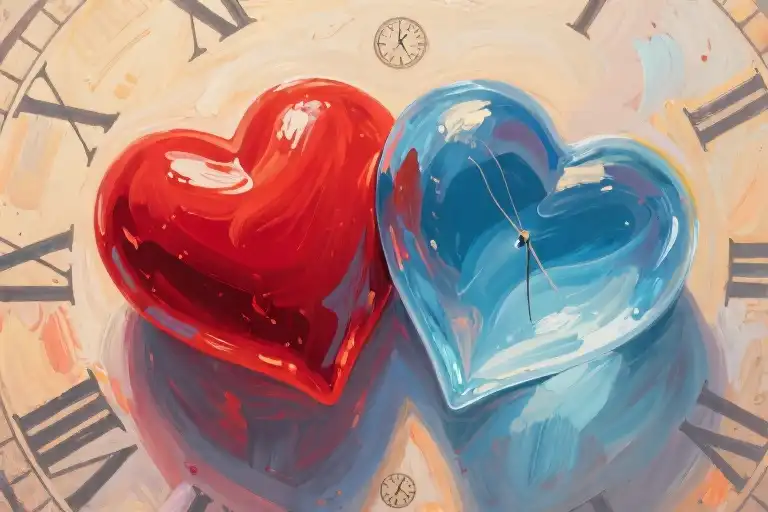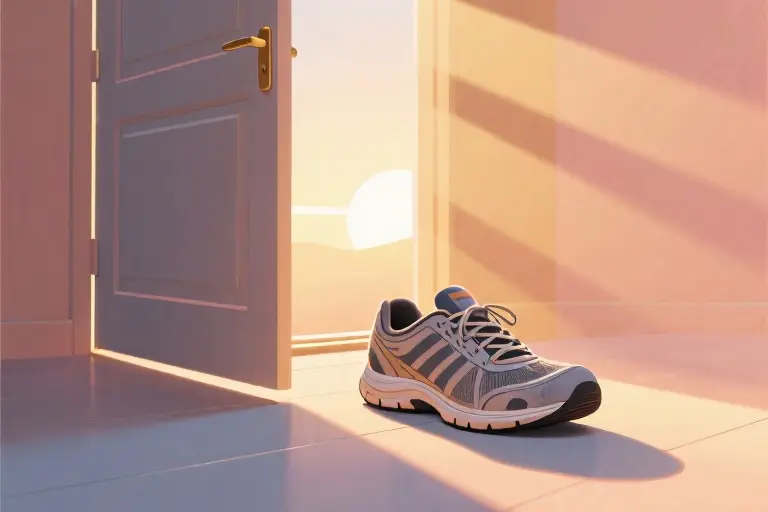The notification pops up – another engagement announcement. You tap through Instagram stories seeing couples making breakfast together in matching pajamas, hiking hand-in-hand with #relationshipgoals captions. That familiar pang hits again as you stare at your single-serve coffee mug. “Why am I still alone when everyone else is finding love?”
Social media has become a highlight reel of romantic relationships, constantly feeding us curated moments that spark comparison. The algorithms know exactly what hurts – showing you those cozy couple videos right when you’re winding down for bed alone. Comments sections overflow with yearning: “When will it be my turn?” “God, is this too much to ask?” creating collective FOMO that twists singleness into personal failure.
Here’s what no one posts about: the unglamorous 90% of relationships that exist between those picture-perfect moments. The silent treatments over unwashed dishes, the compromises on career moves, the emotional labor rarely captured in sunset photos. Meanwhile, your single life holds something extraordinary – complete freedom to design days exactly as you please without negotiation or apology.
Being single in your 20s isn’t a waiting room for real life to begin. This is your golden era of self-discovery, where you’re building the emotional foundation for all future relationships – especially the one with yourself. Research shows singles develop stronger social networks and self-reliance skills compared to peers in early relationships. Those solo dinners? They’re teaching you comfortable silence. The unshared bed? Space for uninterrupted self-reflection.
The greatest love story isn’t about finding your missing half – it’s about becoming whole on your own terms. Before you can healthily love another, you must first become someone who:
- Knows their core values beyond societal expectations
- Sets boundaries without guilt
- Finds joy in their own company
- Takes full responsibility for their happiness
This isn’t about rejecting love, but about approaching relationships from abundance rather than lack. When you stop seeing singleness as empty time to endure, you start noticing its gifts: spontaneous road trips, late-night creative bursts, friendships that deepen without romantic distractions. Your 20s offer something priceless – undivided attention to become the person you’d want to spend forever with.
So tonight when you see another #couplegoals post, remember: their journey isn’t your benchmark. Your path holds different treasures – the kind that can’t be captured in square frames or hashtags, but will shape every relationship you’ll ever have, especially the lifelong one with yourself.
The Single Person’s Social Media Survival Guide
Scrolling through your feed feels like walking through a minefield these days. One moment you’re watching cat videos, the next you’re bombarded with perfectly curated couple content – sunset beach walks, homemade pasta dates, surprise anniversary trips with #RelationshipGoals captions. That sinking feeling in your stomach isn’t jealousy – it’s what happens when algorithms feed you endless highlight reels while you’re living in reality.
How Algorithms Distort Our Perception
Social media platforms are designed to show us idealized versions of life, not complete pictures. Those picture-perfect couples? Their posts represent about 2% of their actual relationship – the 98% of mundane moments, disagreements, and personal struggles never make the cut. Yet our brains process these snippets as complete narratives, creating unrealistic benchmarks for our own lives.
Three key ways platforms amplify single anxiety:
- Engagement Bias: Controversial or emotionally charged content gets prioritized. Dramatic romantic gestures outperform mundane solo activities
- Frequency Illusion: Once you interact with one couple post, the algorithm shows you dozens more
- Comparison Trap: Side-by-side viewing of others’ curated happiness vs. your unfiltered daily life
The Societal Clock Ticking in Your Ears
Pew Research reveals 75% of singles in their 20s report feeling external pressure to settle down. This ‘schedule anxiety’ comes from multiple directions:
- Family Expectations: “When are you bringing someone home?” becomes a holiday soundtrack
- Cultural Milestones: Movies/TV shows portraying 20-somethings finding ‘the one’
- Biological Myths: Outdated notions about fertility windows creating false urgency
A recent University of Chicago study found the average age for first marriage in the U.S. is now 30 for women and 32 for men – yet our social narratives haven’t caught up with this reality.
Breaking the Anxiety Cycle
The dangerous pattern looks like this:
- See idealized couple content → 2. Feel inadequate → 3. Seek validation through dating apps → 4. Experience disappointing dates → 5. Return to social media feeling worse
Intervention points:
- Content Audit: Unfollow accounts triggering negative comparisons (yes, even that friend from high school)
- Reality Check: For every #CoupleGoals post, remember there are 10 unshared arguments
- Time Reclamation: The 2 hours spent scrolling dating apps could become guitar lessons or gym time
Your New Social Media Mantras
- “Their highlight reel isn’t my reality – or theirs”
- “This platform shows me fragments, not truths”
- “My worth exists offline first”
Pro tip: Create a ‘self-growth’ alternate account following:
- Solo travel bloggers
- Career development coaches
- Hobby tutorial accounts
- Psychology researchers
Remember: Social media is a tool, not a life sentence. You hold the mute button, the unfollow option, and most importantly – the off switch.
Redefining Value: The Three Privileges of Being Single in Your 20s
The Time Capital for Deep Self-Exploration
Your 20s singlehood isn’t an empty waiting room – it’s a private library where you get unlimited access to the most important subject: yourself. Unlike friends in relationships juggling couple time with personal goals, you have undisturbed hours to answer critical questions: What makes your pulse quicken? Which conversations leave you energized at 2AM? That pottery class you’ve bookmarked three times? This is your sign to finally enroll.
Research from the University of California shows singles in their 20s dedicate 17 more hours weekly to skill development than their partnered peers. That’s 884 hours annually – enough to become conversational in Spanish, run a marathon, or launch a side hustle. The key isn’t just having time, but treating it like venture capital for your future self.
Complete Autonomy in Financial and Lifestyle Decisions
No compromising on your dream city because “they got a better job offer.” No splitting holidays between competing family traditions. Singlehood grants something increasingly rare in our interconnected world: pure, unfiltered self-determination. Want to spend Saturday learning calligraphy instead of brunching? Done. Feel like relocating to Portugal for a digital nomad stint? Pack your bags.
This autonomy extends to finances too. Without relationship compromises, you can:
- Allocate 30% of income to travel instead of saving for dual furniture
- Take career risks with lower stakes
- Design a minimalist wardrobe without “but my partner loves me in dresses” pressures
As financial planner Rachel Lawson notes: “Singles in their 20s who maximize this autonomy often enter serious relationships later with stronger financial identities – a major predictor of relationship satisfaction.”
The Emotional Independence Laboratory
Here’s the unspoken truth: every healthy relationship requires two whole people, not two halves seeking completion. Your single years are the ultimate training ground for developing emotional resilience – that critical ability to sit with discomfort without frantically swiping for distraction.
Practice identifying your emotions like a scientist:
- When loneliness surfaces, observe it like weather passing through
- Journal the physical sensations (tight chest? restless legs?)
- Trace the trigger (Instagram engagement posts? Family questions?)
- Choose a constructive response (call a friend, creative project)
This emotional muscle memory pays dividends. Dr. Elaine Aron’s research on highly sensitive people shows those who developed solo coping mechanisms transition into relationships with 40% less dependency anxiety. Your present solitude is literally rewiring your brain for healthier future connections.
Making It Practical
Turn these privileges into tangible advantages:
- Create a “Self-Investment Portfolio”
- Time: Block three weekly “exploration hours” for skill-building
- Money: Automate savings into a “Freedom Fund” only you control
- Energy: Track activities that drain vs. energize you for a month
- Design Your Personal Growth Curriculum
- Quarter 1: Emotional literacy (therapy, journaling frameworks)
- Quarter 2: Adventure skills (solo travel planning, basic car repair)
- Quarter 3: Financial fluency (investing basics, tax optimization)
- Leverage the Single Person’s Secret Weapon: Spontaneity
When friends cancel last-minute, see it as an opportunity rather than disappointment. That sudden free evening? Perfect for:
- Visiting that new gallery exhibit alone
- Taking an improv class across town
- Cooking an elaborate recipe just because
Remember: These aren’t consolation prizes – they’re competitive advantages. The self-knowledge and resilience you build now become your personal operating system, one that will serve you whether you choose lifelong singlehood or eventual partnership. As poet Nayyirah Waheed writes: “The most important relationship you will ever have is the one you cultivate with the person staring back from your mirror.”
The Self-Love Playbook: From Self-Doubt to Self-Acceptance
That moment when Instagram shows yet another couple’s anniversary post with #RelationshipGoals, and your thumb freezes mid-scroll. We’ve all been there. But here’s the truth no one tells you: being single isn’t waiting time—it’s becoming time. This chapter transforms theory into action with practical tools to rewrite your single narrative.
The 30-Day Self-Love Challenge (Micro-Actions Edition)
Forget overwhelming overhauls. Lasting change happens through daily micro-practices:
Week 1: Foundation Building
- Morning Mirror Work (90 sec): Stand before your mirror and say: “I choose myself today” (no eye-rolling allowed—it works)
- Digital Sunset: Set phone to grayscale mode after 8PM (iOS/Android guide in screenshot below)
- Sensory Check-In: Pause at 3PM to name: 1 thing you see/hear/smell/feel (trains present-moment awareness)
Week 2: Emotional Muscle Training
- ‘No’ Practice: Decline one non-essential request (“Can I reschedule? I’m honoring my me-time”)
- Comparison Detox: When envying someone’s relationship, list 3 freedoms you have that they don’t
- Gratitude Flip: Replace “I’m alone” with “I’m complete” in your inner dialogue
Week 3: Joy Rediscovery
- Solo Adventure: Do that “couples activity” alone (museum dates > awkward small talk)
- Playlist Therapy: Create a “Single & Thriving” anthem playlist (pro tip: include “Flowers” by Miley Cyrus)
- Boundary Art: Text yourself goodnight messages (sounds silly—until you feel cared for)
Week 4: Integration
- Legacy Letter: Write your future self a love note (“Dear 35-year-old me, thank you for…”)
- Social Media Audit: Use this 3-question filter before posting:
- Am I seeking validation?
- Does this reflect my truth?
- Will this nourish me tomorrow?
Social Media Detox: Your Digital Declutter Toolkit
The 5-Minute Cleanse
- Unfollow 3 accounts triggering comparison (mute first if hesitant)
- Replace with @TheSingleSupplement (self-growth content)
- Curate your explore page by long-pressing unwanted posts > “Not Interested”
Algorithm Reset Trick
Search for these daily to retrain your feed:
- #SingleAndSatisfied
- Solo travel blogs
- “How to enjoy being single” TED Talks
Aunt Karen’s Thanksgiving Quiz: Response Templates
For prying relatives:
- “I’m dating someone fantastic—me!” (with unshakable smile)
- “I’m in a committed relationship with my personal growth” (optional air toast)
- “When I meet someone worthy of this glow-up, you’ll be first to know” (mic drop exit)
For self-doubt moments:
- “My timeline isn’t late—it’s custom-designed”
- “I’m not missing out; I’m leveling up”
- Journal prompt: List 5 things younger-you would envy about your current freedom
Progress Tracker
| Week | Completed Challenges | How I Grew |
|---|---|---|
| 1 | Morning mirror work | Stopped apologizing for taking space |
| 2 | Said no to extra work | Felt lighter instantly |
Remember: Self-love isn’t a destination—it’s the daily practice of choosing yourself. As poet Nayyirah Waheed wrote, “You are your own soulmate.” This chapter isn’t about waiting for love; it’s about becoming it.
Building the Foundation for Healthy Future Relationships
While being single in your 20s offers unparalleled freedom for self-discovery, this period also presents a golden opportunity to lay the groundwork for fulfilling future relationships. The work you do on yourself today directly impacts the quality of your connections tomorrow. Let’s explore how to use this solo season strategically.
Creating Your Personal Core Values Checklist
Before considering what you want in a partner, get crystal clear about who you are. Your core values act as relationship GPS – they’ll help you navigate toward compatible connections and away from mismatches.
Start by answering:
- What three non-negotiable principles guide my life decisions?
- Which five qualities make me feel most respected in relationships?
- What daily practices keep me emotionally balanced?
Pro tip: Values evolve. Revisit this checklist every six months. The self-awareness you develop now prevents settling for relationships that don’t honor your authentic self later.
Interest-Based Community Engagement (Online & Offline)
Quality relationships often blossom from shared passions rather than forced dating scenarios. Strategic socializing beats random swiping:
Online Tactics:
- Join niche Facebook groups (like “Plant Parents Who Travel”)
- Participate in Twitter chats about your professional field
- Take Skillshare classes with active discussion boards
Offline Approaches:
- Attend Meetup.com events with consistent regulars (book clubs > one-time mixers)
- Volunteer for causes you genuinely care about
- Take local classes (pottery studios often have better connection potential than bars)
Remember: The goal isn’t to hunt for partners but to expand your circle organically. Shared interests create natural conversation starters that dating apps can’t replicate.
Applying the Law of Attraction Wisely
While “manifesting love” sounds magical, healthy relationships require more than vision boards. Balance mystical thinking with practical action:
Do:
- Visualize the feelings you want (security, joy) rather than specific person traits
- Cultivate those desired feelings independently first
- Take inspired action toward self-improvement
Don’t:
- Obsess over timelines (“I must meet someone by 30”)
- Ignore red flags because someone “matches your manifestation”
- Neglect present-moment living for future fantasizing
Psychology research shows people attract partners at their current emotional level. By focusing on becoming your best self, you naturally increase chances of meeting someone equally evolved.
The Preparation Paradox
Here’s the beautiful contradiction: The more fully you embrace singlehood, the better prepared you become for partnership. Each solo dinner you enjoy, each boundary you set, each hobby you develop – these aren’t distractions from finding love but prerequisites for healthy love.
Your 20s offer something no other decade can: The gift of undivided attention to self-development. Future you will thank present you for investing it wisely.
The Final Chapter: Your Love Story Starts With You
The Irreplaceable Privilege of Your 20s
Right now, you hold something extraordinary in your hands – the golden ticket of your 20s. This isn’t just about being young; it’s about possessing that rare combination of energy, freedom, and endless possibilities that will never come again in exactly this way. While society whispers about biological clocks, the truth is you’re holding the most valuable currency of all: uninterrupted time to become who you’re meant to be.
Consider this: every relationship you’ll ever have will be filtered through the lens of who you are at that moment. The stronger your foundation of self-knowledge and self-worth, the healthier every future connection will be. That promotion you might hesitate to take because it requires relocation? The backpacking trip through Southeast Asia you’ve dreamed about? The creative project that keeps you up at night? These aren’t just items on a bucket list – they’re the building blocks of your emotional independence.
Letters From the Journey: Real Transformations
“After six months of weekly ‘solo dates’ where I’d take myself to museums or new restaurants, I noticed something unexpected – I stopped scanning every room for potential partners. For the first time, I was genuinely enjoying my own company. When I did eventually meet someone, it was at a pottery class I’d signed up for just because it looked fun.” – Jamie, 27
“Deleting dating apps for 90 days was terrifying, but it forced me to confront how much validation I’d been seeking from strangers. The space created room for reconnecting with old friends and finally starting the food blog I’d talked about for years.” – Priya, 29
These aren’t fairy tale endings – they’re real turning points from readers who discovered that self-love isn’t a consolation prize, but the foundation for everything else. Notice what they have in common? The magic happened when they stopped waiting for someone else to give them permission to live fully.
Your First Love Letter (To Yourself)
Before you close this chapter, there’s one last assignment – and it might be the most important one. Find a quiet moment today to look in the mirror and say these words out loud:
“I choose you first.”
It might feel awkward. You might laugh nervously. That’s okay. Revolutionary acts often feel strange at first. This simple declaration is more than affirmation – it’s a seismic shift in priority that will ripple through every decision you make.
Remember when we talked about filling your own cup? This is where it starts – with the daily practice of showing up for yourself with the same enthusiasm you’d bring to a new romance. The morning coffee you take time to savor. The workout you do because it makes you feel strong, not because it might make you look attractive. The boundaries you set to protect your peace.
The Invitation
As we wrap up, I’ll leave you with this: The relationships that will matter most in your life haven’t been written yet, but the most enduring one – the one with yourself – is being authored every single day through the choices only you can make.
May this year be the one where:
- Your laughter comes more easily in your own company
- Your dreams take priority over someone else’s potential approval
- Your heart expands not from lack, but from abundance
Now, go write that first love letter. The pen’s been in your hand all along.





